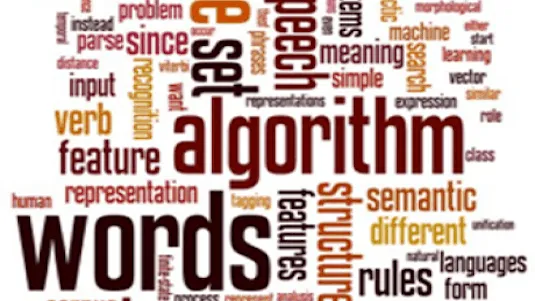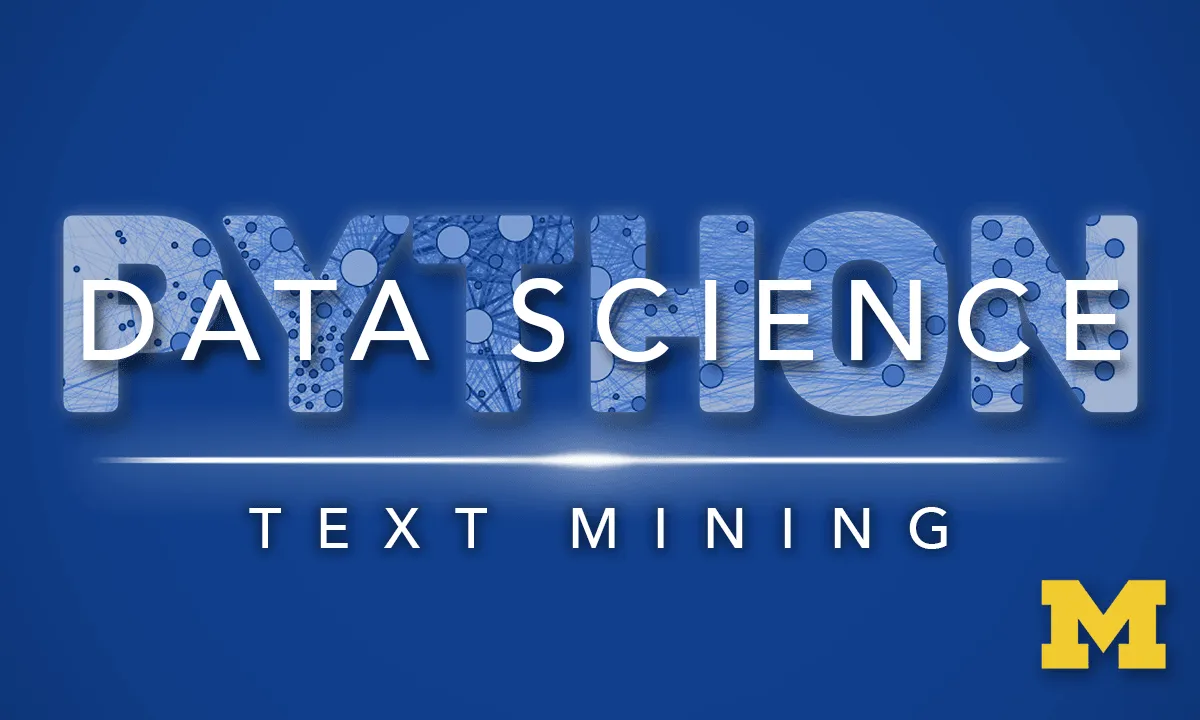
Natural Language Processing 
This course will introduce students to the fundamentals of natural language processing (NLP). Students will learn algorithms and mathematical models for processing natural language, and how these can be used to solve practical problems. Topics covered include text classification, sentiment analysis, part-of-speech tagging, parsing, and machine translation. Students will also learn how to apply these techniques to real-world applications such as search engines, question answering systems, and text summarization. By the end of the course, students will have a solid understanding of the fundamentals of NLP and be able to apply them to solve practical problems. ▼
ADVERTISEMENT
Course Feature
![]() Cost:
Cost:
Free
![]() Provider:
Provider:
Coursera
![]() Certificate:
Certificate:
No Information
![]() Language:
Language:
English
![]() Start Date:
Start Date:
12th Mar, 2012
Course Overview
❗The content presented here is sourced directly from Coursera platform. For comprehensive course details, including enrollment information, simply click on the 'Go to class' link on our website.
Updated in [May 17th, 2023]
Introduction:
Welcome to the Natural Language Processing course! In this course, you will learn the fundamental algorithms and mathematical models for processing natural language, and how these can be used to solve practical problems. This course will provide you with the necessary skills to understand and apply natural language processing techniques to real-world applications.
This course will cover the fundamentals of natural language processing, including topics such as text classification, sentiment analysis, and machine translation. You will learn how to apply these techniques to solve practical problems, such as text summarization, question answering, and dialogue systems. You will also learn about the mathematical models and algorithms used in natural language processing, and how to use them to build effective systems.
Possible Development Directions:
In this course, you will gain the skills to develop natural language processing applications. You will learn how to use existing tools and libraries to build systems, and how to develop your own algorithms and models. You will also learn how to evaluate the performance of your systems, and how to improve them.
Related Learning Suggestions:
In addition to this course, you may want to consider taking courses in machine learning, artificial intelligence, and data science. These courses will provide you with the necessary skills to develop more advanced natural language processing applications. You may also want to consider taking courses in linguistics, which will provide you with a deeper understanding of the structure and meaning of language.
[Applications]
After this course, students can apply the knowledge they have gained to develop natural language processing applications. These applications can be used to create automated systems for text analysis, sentiment analysis, machine translation, and more. Additionally, students can use the algorithms and models they have learned to create their own natural language processing systems.
[Career Paths]
1. Natural Language Processing Engineer: Natural Language Processing Engineers are responsible for developing and deploying algorithms and models to process natural language data. They must have a strong understanding of machine learning, deep learning, and natural language processing techniques. This job is expected to grow in demand as more companies look to leverage natural language processing for their products and services.
2. Natural Language Processing Researcher: Natural Language Processing Researchers are responsible for researching and developing new algorithms and models for processing natural language data. They must have a strong understanding of machine learning, deep learning, and natural language processing techniques. This job is expected to grow in demand as more companies look to leverage natural language processing for their products and services.
3. Natural Language Processing Consultant: Natural Language Processing Consultants are responsible for providing advice and guidance to companies on how to best use natural language processing for their products and services. They must have a strong understanding of machine learning, deep learning, and natural language processing techniques. This job is expected to grow in demand as more companies look to leverage natural language processing for their products and services.
4. Natural Language Processing Product Manager: Natural Language Processing Product Managers are responsible for managing the development and deployment of natural language processing products. They must have a strong understanding of machine learning, deep learning, and natural language processing techniques. This job is expected to grow in demand as more companies look to leverage natural language processing for their products and services.
[Education Paths]
1. Bachelor of Science in Computer Science: This degree program provides students with a comprehensive understanding of computer science principles and their application to the development of software and hardware systems. Students will learn about algorithms, data structures, programming languages, operating systems, computer networks, and artificial intelligence. This degree is ideal for those interested in pursuing a career in natural language processing, as it provides the necessary foundation for understanding the algorithms and models used in the field. Additionally, the degree provides a strong foundation for further study in the field.
2. Master of Science in Artificial Intelligence: This degree program focuses on the development of intelligent systems and their application to natural language processing. Students will learn about machine learning, deep learning, natural language processing, and other related topics. This degree is ideal for those interested in pursuing a career in natural language processing, as it provides the necessary foundation for understanding the algorithms and models used in the field. Additionally, the degree provides a strong foundation for further study in the field.
3. Doctor of Philosophy in Natural Language Processing: This degree program focuses on the development of advanced algorithms and models for natural language processing. Students will learn about machine learning, deep learning, natural language processing, and other related topics. This degree is ideal for those interested in pursuing a career in natural language processing, as it provides the necessary foundation for understanding the algorithms and models used in the field. Additionally, the degree provides a strong foundation for further study in the field.
4. Master of Science in Data Science: This degree program focuses on the development of data-driven solutions for natural language processing. Students will learn about machine learning, deep learning, natural language processing, and other related topics. This degree is ideal for those interested in pursuing a career in natural language processing, as it provides the necessary foundation for understanding the algorithms and models used in the field. Additionally, the degree provides a strong foundation for further study in the field.
Course Provider

Provider Coursera's Stats at AZClass
Discussion and Reviews
0.0 (Based on 0 reviews)
Explore Similar Online Courses

Learn Mexican Spanish with Video and Pictures

IELTS Strategies (English Version)

Python for Informatics: Exploring Information

Social Network Analysis

Introduction to Systematic Review and Meta-Analysis

The Analytics Edge

DCO042 - Python For Informatics

Causal Diagrams: Draw Your Assumptions Before Your Conclusions

Whole genome sequencing of bacterial genomes - tools and applications

Text Analytics 2: Visualizing Natural Language Processing

Applied Text Mining in Python

Text Analytics 1: Introduction to Natural Language Processing
 Related Categories
Related Categories
Quiz
 Submitted Sucessfully
Submitted Sucessfully
1. What is the main focus of this course?
2. What type of problems can be solved using natural language processing?
3. What type of algorithms are used in natural language processing?
4. What is the main focus of Natural Language Processing?
Correct Answer: Processing natural language.


Start your review of Natural Language Processing